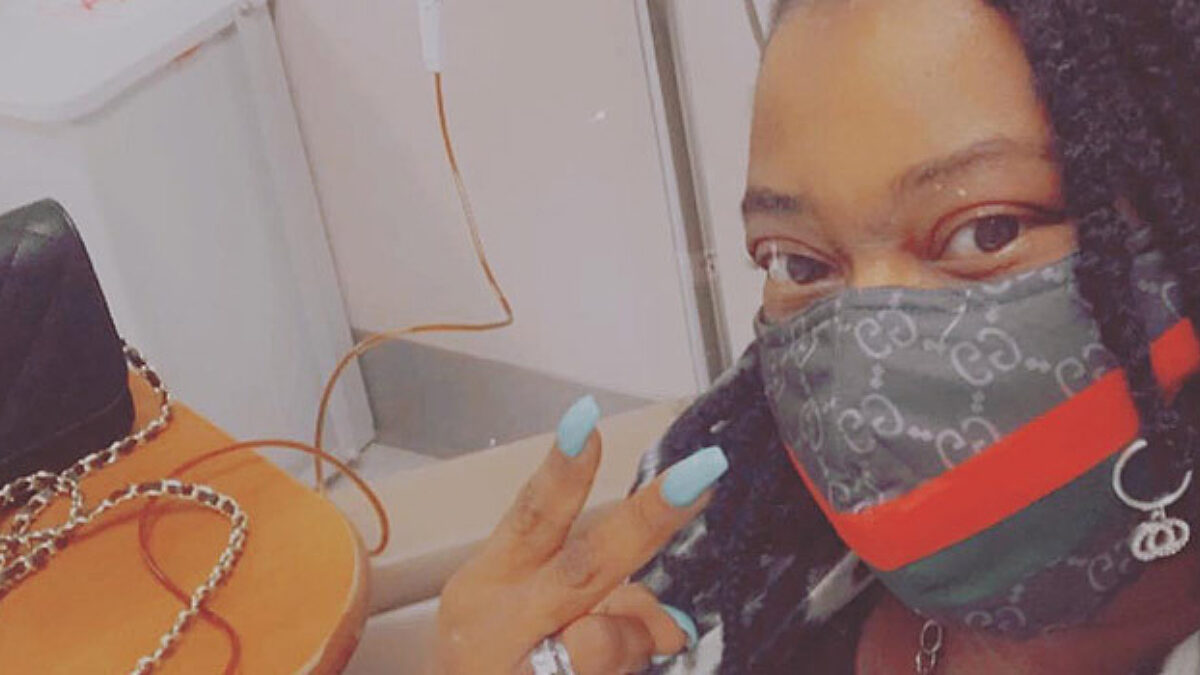
Faith challenge: Woman’s kidney disease helps remind her of importance of prayer, lifestyle change
By Jessica Brodie
Two years ago, Stephanie Ponds Henry was living her dream. Newly married to her husband, ShaRome, both worked for the South Carolina Conference of The United Methodist Church in the conference office, and both were active members of Good Hope Wesley Chapel UMC in Camden. Life was good.
Then, just three short months later, everything was falling apart.
Henry, who works as a health benefits specialist, had taken advantage of the UMC’s free comprehensive health screening, Quest Blueprint for Wellness, at Annual Conference 2019 in Greenville.
“Then I got a call from Quest saying my creatinine levels were high,” Henry said.
A lot of back-and-forth doctor visits, ultrasounds and blood tests later, the bad news was confirmed: Henry had Stage 4 kidney disease.
She couldn’t believe it. “I consider myself to have always been in good health,” Henry said. “I never had any major issues, never had the flu, pneumonia, anything serious other than maybe a head cold or a stomach virus.”
Other than her pregnancy, she’d never even been in the hospital. She only had two issues: high blood pressure, and she’d been a smoker most of her adult life.
At first, she didn’t want to accept the news.
“It was hard,” Henry said. “And it all happened pretty fast. Basically, one simple routine checkup turned into, ‘Oh, by the way, you have Stage 4 kidney disease.’ It really came out of nowhere.”
The only girl in a family of military and police males, Henry always trained herself to deal with her emotions in a rational way. “I used to think crying was for the weak. But sometimes, you’ve got to buckle.”
Doctors don’t know why she has the disease, and her kidneys were not strong enough to biopsy without causing further damage. But they suspect her blood pressure medicine contributed, for it does have the potential to damage other parts of the body, such as the liver and pancreas. Her official diagnosis is “nephritis of the kidney,” or severe inflammation. At the time of her diagnosis, she was at 24 percent kidney function. As of her last checkup, she was at 15 percent.
Currently, she is on the national transplant list, and she is working as hard as possible with food, lifestyle and other changes to keep her sodium levels stable and her blood pressure down so she can maintain kidney health as long as possible. She’s stopped eating fast food and drinking soda, quit smoking and now eats a ton of fresh fruits and vegetables. She’s also meditating to keep her stress down. And as a strong woman of faith, she relying heavily on prayer.
“I don’t want to be on dialysis, that’s my goal, and I will fight to my last breath not to be on it,” Henry said.
Right now she’s still able to work full-time, but she’s exhausted when she comes home. Her husband and daughter pitch in with house duties, grocery shopping, cooking and other tasks. Kidney diseases leaves a person energy-depleted and exhausted, plus causes them to experience muscle spasms, blurred vision and more.
“There are days when I don’t feel like doing anything but sleep,” Henry said. And the muscle spasms, she said, “Sometimes drop me to my knees, they’re so intense.”
As she explained, with kidney disease your body pulls nutrients from other parts of your body like your muscles, which make them contract, much like a charley horse.
“I’m not an athlete, but you’d think I’m in the Olympics because of the number of charley horses I get.”
Even walking through the mall with her daughter, she has to stop and take breaks.
For now, Henry is waiting and praying for a donor. While a deceased kidney donor would be acceptable, her doctors have told her a living donor would be ideal. She has a rare blood type—B-positive, which only 8.5 percent of the world has, but she’s part of a new program called “Donor Swap,” where if someone agrees to donate a kidney for her but they are not a match, the program will match that kidney to someone else and guarantee her a kidney from someone who is a match in return.
A kidney from a living donor has a 98 percent success rate, she said, so that would be the preferred option. Her insurance would cover everything—her donor’s surgery and her surgery.
The donor has to be healthy, but it can be from anyone—any gender, race, age, etc. Her husband tried to register to be a donor, but unfortunately his own blood pressure was considered too high to allow him to be a candidate.
Henry is just praying God will send a donor and she’ll be able to get a transplant and continue on with life and all the good work God has in store for her.
She’s also trying to stay positive and learn what God intends her to get from the experience.
“Instead of why me, I say, ‘Why not me?’ That’s what gives me peace. I’m happy because God is going to use this for something. I have kidney disease because there’s something I have to do, and I’m up to whatever he needs me to do because my faith says he’s going to get me through this.”
To learn more about MUSC Health’s Living Donor Program, call 843-792-5097. To register to be a kidney transplant living donor for Henry, visit https://tinyurl.com/sphdonor.